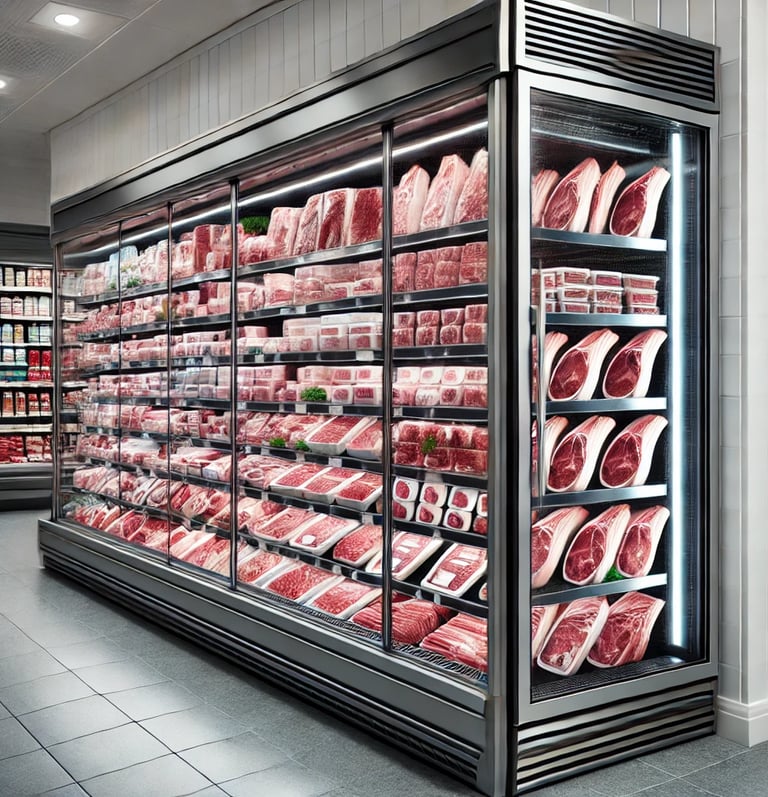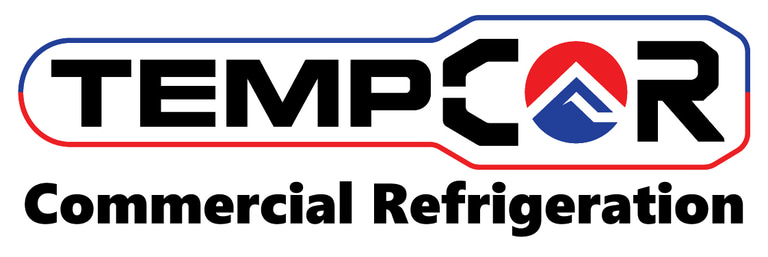Understanding the Impact of Temperature Fluctuations and Commercial refrigeration maintenance
Discover how temperature fluctuations in refrigeration systems can affect product quality and safety, and learn why a Commercial refrigeration maintenance schedule is crucial for maintaining consistency.
8/23/20243 min read


In commercial refrigeration, maintaining consistent temperatures is vital for ensuring the quality and safety of stored products. However, even minor fluctuations in temperature can have serious consequences, leading to spoilage, compromised quality, and safety concerns. One of the most effective ways to prevent these issues is by implementing a comprehensive preventative maintenance schedule. In this article, we’ll explore how temperature inconsistencies impact stored products and why regular maintenance is key to avoiding these problems.
Why Temperature Consistency Matters
The quality and safety of stored products, whether they are perishable foods or temperature-sensitive pharmaceuticals, depend heavily on maintaining a stable environment. When refrigeration systems fail to maintain consistent temperatures, it can result in the growth of harmful bacteria, spoilage, and degradation of products.
For example, perishable foods like dairy, meat, and seafood are particularly vulnerable to temperature fluctuations. Exposure to temperatures outside their safe range can lead to foodborne illnesses and significant financial losses due to spoilage. In the case of pharmaceuticals, even slight temperature variations can render medications ineffective, posing serious health risks.
The Science Behind Temperature Fluctuations
Temperature fluctuations in refrigeration systems can occur for various reasons, including:
Door Openings: Frequent or prolonged opening of refrigerator doors can cause warm air to enter, leading to a temporary rise in internal temperature.
Defrost Cycles: During automatic defrost cycles, the temperature inside the unit can temporarily increase, which, if not managed correctly, can affect sensitive products.
System Malfunctions: Issues such as refrigerant leaks, faulty compressors, or malfunctioning thermostats can lead to irregular temperature control, causing fluctuations.
Improper Loading: Overloading the refrigeration unit or blocking air vents can obstruct airflow, leading to uneven cooling and temperature variations.
The Role of Preventative Maintenance in Temperature Control
Preventative maintenance plays a crucial role in ensuring that your commercial refrigeration systems operate efficiently and maintain consistent temperatures. By scheduling regular inspections and servicing, you can catch potential issues before they lead to costly breakdowns or temperature fluctuations.
Key aspects of preventative maintenance include:
Regular Inspections: Routine checks of critical components such as compressors, fans, and thermostats can identify wear and tear or potential failures before they cause temperature inconsistencies.
Cleaning Coils and Filters: Dirty coils and clogged filters can obstruct airflow, leading to uneven cooling and temperature fluctuations. Regular cleaning as part of your maintenance schedule ensures optimal system performance.
Checking Refrigerant Levels: Low refrigerant levels can impair cooling efficiency, leading to temperature instability. Regular maintenance ensures that refrigerant levels are topped up and leaks are detected early.
Calibrating Thermostats: Over time, thermostats can lose their accuracy, leading to improper temperature regulation. Regular calibration as part of your maintenance routine keeps them functioning correctly.
Testing Defrost Cycles: Ensuring that defrost cycles are functioning correctly and not causing excessive temperature spikes during operation is another important aspect of preventative maintenance.
Impact of Temperature Fluctuations on Stored Products
Without a robust maintenance schedule, temperature fluctuations can wreak havoc on your stored products. The potential impacts include:
Spoilage and Wastage: Inconsistent temperatures can lead to rapid spoilage of food products, resulting in waste and increased risk of foodborne illnesses.
Compromised Quality: Fluctuating temperatures can alter the texture, flavor, and nutritional content of food. For example, ice crystals may form in dairy products, affecting their quality.
Reduced Shelf Life: Both food and pharmaceuticals can experience a significantly reduced shelf life when exposed to temperature fluctuations, leading to increased costs for more frequent replacements.
Safety Concerns: For pharmaceuticals, maintaining the correct temperature is critical for efficacy. Any deviation from the prescribed range can compromise the safety and effectiveness of the medication.
The Importance of a Service Schedule
Implementing a regular service schedule is essential for maintaining temperature consistency and preventing the issues mentioned above. A well-planned service schedule includes:
Scheduled Inspections: Regularly scheduled inspections help identify potential problems before they lead to temperature fluctuations or system failures.
Proactive Repairs: Addressing minor issues identified during inspections before they become major problems is a cornerstone of effective preventative maintenance.
System Optimization: Regular service visits allow technicians to optimize your refrigeration systems for maximum efficiency, ensuring that they maintain consistent temperatures with minimal energy use.
Documentation and Monitoring: Keeping detailed records of maintenance activities helps track the health of your refrigeration systems over time, allowing for better planning and more effective maintenance strategies.
Training for Staff: Ensuring that your staff understands the importance of maintenance and knows how to spot potential issues can enhance the effectiveness of your service schedule.
Understanding the impact of temperature fluctuations on stored products is critical for anyone managing commercial refrigeration systems. However, knowledge alone isn’t enough—implementing a comprehensive preventative maintenance schedule is essential for ensuring the reliability and efficiency of your refrigeration systems.
By committing to regular maintenance, you can prevent temperature inconsistencies, protect the quality and safety of your stored products, and avoid costly disruptions. In the long run, a well-maintained refrigeration system isn’t just about preserving products—it’s about safeguarding your business's reputation and bottom line.


Address
300 Elgin Road
Pamona Precinct
Kempton Park
Contacts
087 702 4776
info@tempcor.co.za
Areas we service
Anywhere in Gauteng
Currently we have sites in:
Eersterust
Doornpoort
Lethlabile
Bronkhorstspruit
Atteridgeville
Brits
Gezina
Silverlakes
Mamelodi
Wonderboom
Montana
Kwa-Guqa
Phola Park
Pretoria
Benoni
Daveton
Groblersdal
Kwaggafontein
Marapyane
Siyabuswa
Soshanguve
Thorntree
Cosmo City
Randburg
Mabopane
Garankuwa
